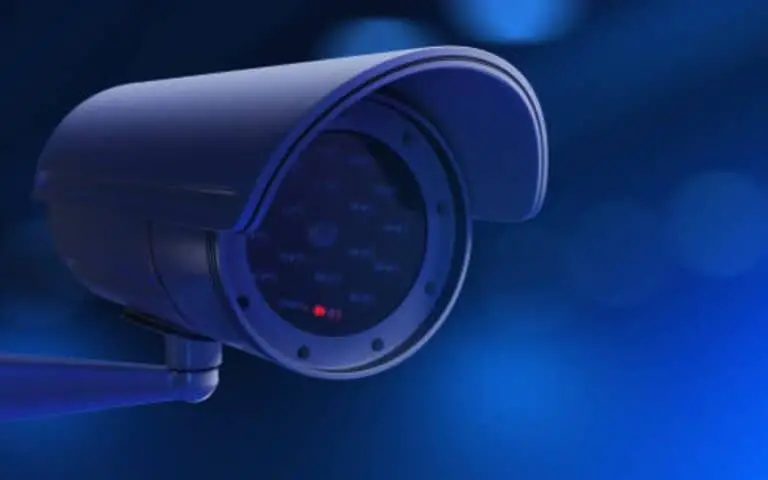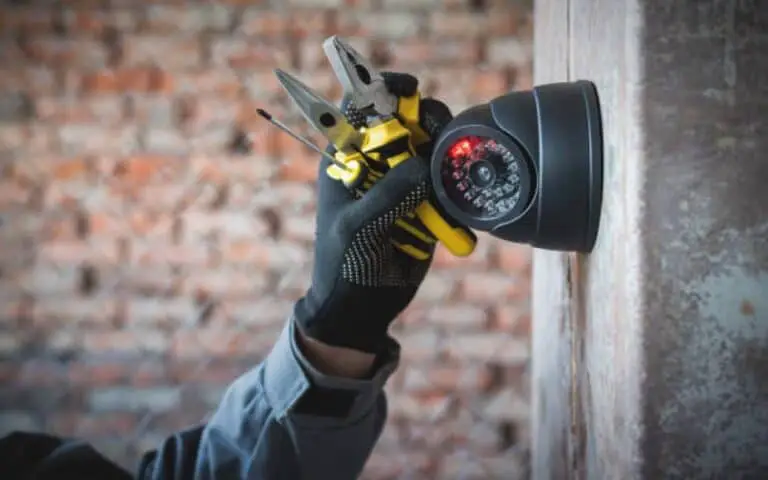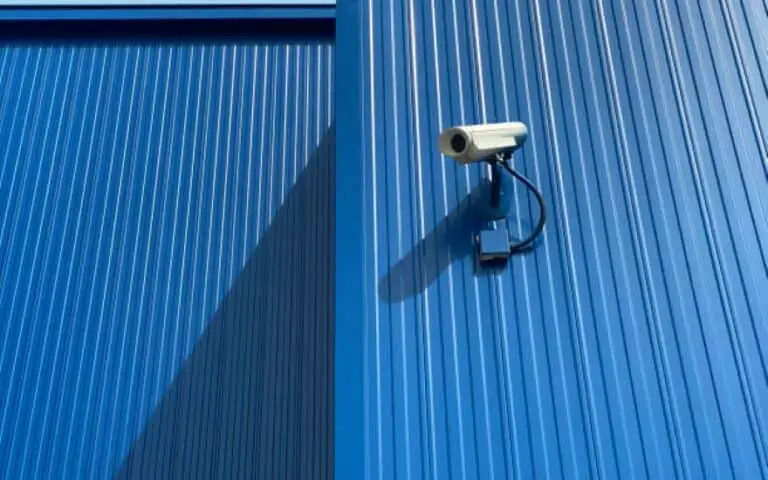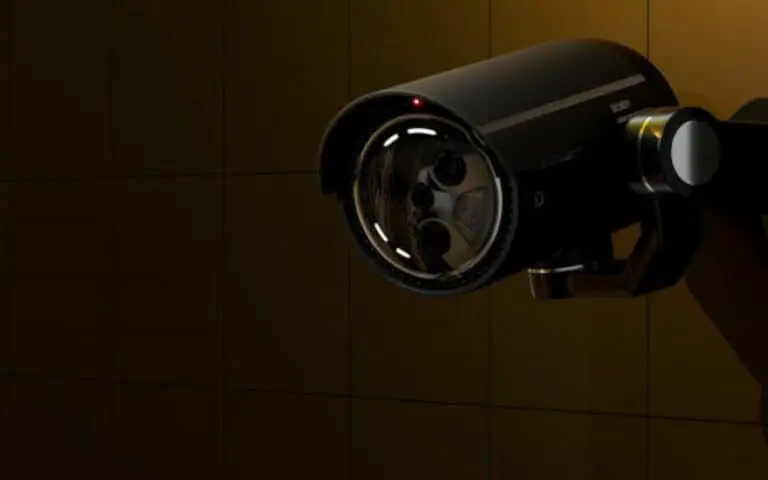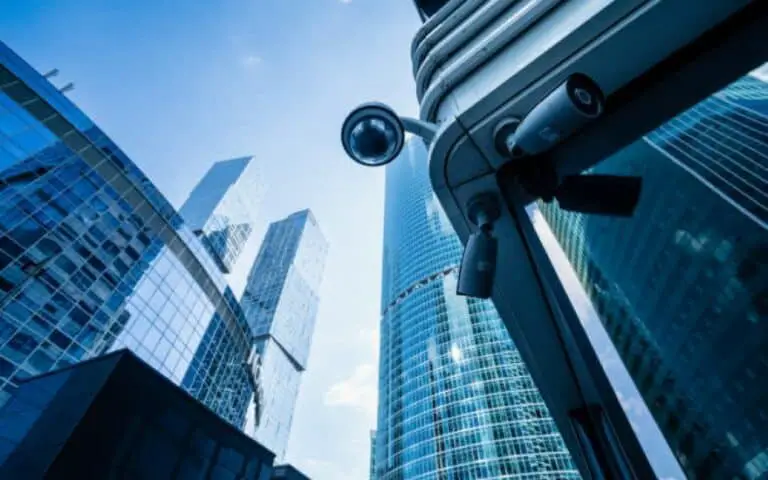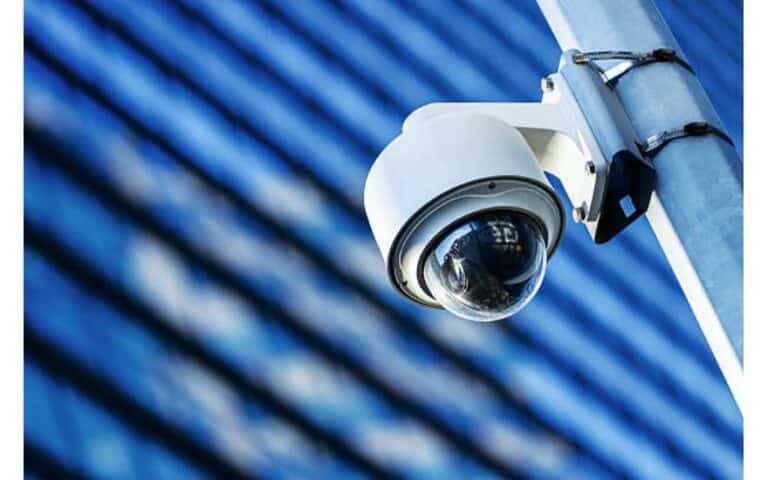As a property owner or manager, securing your rental property is crucial to ensure the safety and protection of both your tenants and property. One of the most common efforts taken to enhance security is to install surveillance cameras.
However, the question arises, can you put security cameras in a rental property? The answer is not as straightforward as one might think. In this blog post, we will delve deeper into the legality of installing security cameras in rental properties to help you make an informed decision. Let’s explore further.
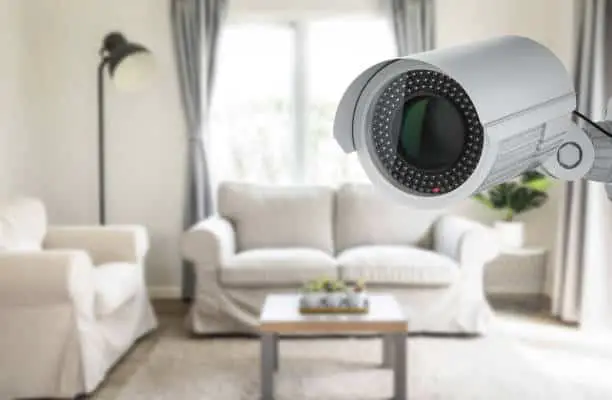
Importance of protecting property investment and tenants
As a landlord, protecting your property investment and the tenants who reside in it is of the utmost importance. Security cameras are an easy and affordable way to contribute to this goal. Not only do they deter burglars and vandals, but they also provide fast alerts to first responders in case of emergency.
Additionally, many prospective tenants see security cameras as an added amenity, and current tenants feel safer in their homes knowing that their landlord is taking proactive measures to protect them. However, it is important to understand the legal regulations surrounding the installation of security cameras to avoid infringing on tenant privacy.
As a best practice, landlords should notify their tenants of the cameras and ensure that they are fully visible. By following these practices, landlords can strike a balance between protecting their investment and respecting tenant privacy. [1][2]
II. Legal Regulations for Landlords Installing Security Cameras
Short answer: Yes, it is legal to install security cameras in tenant-occupied properties
As a landlord, protecting your investment and the safety of your tenants should be of utmost importance. Security cameras have been growing in popularity over the years, becoming more affordable and readily available for consumers.
The question remains, can you install security cameras in tenant-occupied properties? The short answer is yes, it is legal to do so. However, it is important to follow laws and regulations around installation, respecting tenant privacy. Landlords can install security cameras outdoors on the property and in public hallways of an apartment building.
It is best practice to notify tenants of the installation of security cameras and to include it in the lease agreement. Security cameras can be beneficial as they can deter burglars and vandals, provide fast alerts to first responders in emergencies, and can even be seen as added amenities for prospective tenants. [3][4]
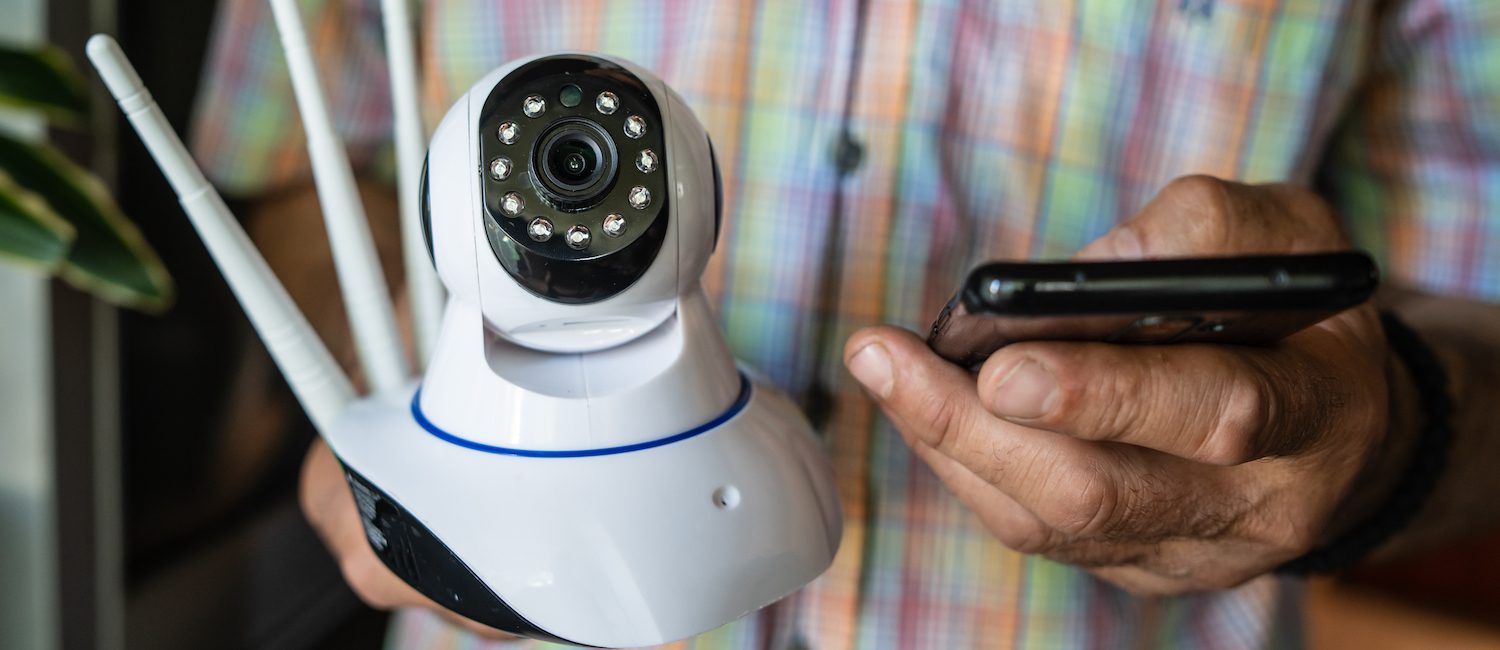
Areas where security cameras cannot be installed to respect tenant privacy
It’s important for landlords to protect their properties and tenants, but it’s equally important to respect tenant privacy when it comes to installing security cameras. There are areas where cameras cannot be installed, and landlords must adhere to these restrictions to avoid violating tenant privacy rights.
Here are the areas where landlords cannot install security cameras to respect tenant privacy:
– Private areas within the rental unit such as bathrooms, bedrooms, and toilets
– Inside the tenant’s rented property – cameras must be visible and not be hidden or spy cameras
– Areas that could invade the privacy of other tenants or neighbors
– Entrances to other parties’ homes, parking spots, yards, and so on
While tenants have more rights when it comes to installing cameras in their rental properties, they must also ensure that they do not violate the privacy of others. By keeping these restrictions in mind, landlords and tenants can ensure that they are not infringing on each other’s privacy and safety. [5][6]
Where landlords can legally install security cameras (outdoors and public hallways of apartment buildings)
Landlords have the right to protect their property investment and tenants by installing security cameras, as long as they do so within the legal framework.
The good news is that landlords can legally install security cameras in outdoor and public areas of apartment buildings such as the driveway, front door, backyard, garage, apartment hallways, lobbies, vestibules, stairwells, and any other areas used for ingress and egress where access is relatively uncontrolled.
This includes placing cameras in public hallways, which can help deter illegal activities such as property damage or theft. However, it’s important to note that landlords cannot install cameras in private residences or in areas where residents have a reasonable expectation of privacy such as change rooms, bathrooms, bedrooms, or toilets.
As such, landlords should always consult local surveillance laws and ensure that they notify tenants of the security cameras to balance landlord protection and tenant privacy. [7][8]

Best practices for notifying tenants of security cameras
When installing security cameras in a rental property, it is important for landlords to notify their tenants beforehand.
Here are some best practices that landlords should consider when informing their tenants about the installation of security cameras:
1. Include language in the lease agreement that outlines the details of the security camera installation.
2. Provide information on where the cameras will be located and why they are being installed.
3. Ensure that the cameras are fully visible when installed to avoid confusion or mistrust.
4. Respect the tenant’s reasonable expectation of privacy and ensure that cameras are not installed in private areas, such as bedrooms or bathrooms.
5. Make sure to follow any legal regulations around notifying tenants of security camera installation in the area.
Notifying tenants of security camera installation can help to establish trust and transparency between landlords and tenants. It can also help tenants to feel safer in their homes knowing that measures are being taken to protect the property and its inhabitants. [9][10]
III. Benefits of a Security System in Rental Property
Prospective tenants see it as an added amenity
Security in rental properties can provide several benefits, including tenant satisfaction and added security. Prospective tenants often see cameras as an added amenity, and it can be a selling point for rental properties. \They feel safer knowing that there is surveillance in place, deterring potential burglars and vandals. Additionally, landlords can use fast alerts to first responders in case of emergencies, ensuring the safety of their tenants.
When considering adding security cameras to rental properties, it’s important to follow legal regulations and notify tenants of their installation. By informing tenants in advance and placing cameras in public areas such as hallways and outdoor spaces, landlords can better balance protection and privacy concerns.
Overall, utilizing security cameras in rental properties can be a useful tool for landlords to protect their investment and provide peace of mind for their tenants. As long as the cameras are placed legally and with consideration for privacy concerns, it can be a valuable amenity for prospective renters. [11][12]

Helps tenants feel safer in their homes
Installing security cameras in rental properties can provide numerous benefits for both landlords and tenants. One of the most significant advantages is that it helps tenants feel safer in their homes. By installing security cameras, tenants can rest assured that their homes are secure, and they have an additional layer of protection.
The cameras can also act as a deterrent to burglars and vandals, who are less likely to attempt to break into a property if they know there are cameras present.
Moreover, security cameras can be useful for providing fast alerts to first responders in case of an emergency. In the event of a break-in, fire, or other emergency, security cameras can notify first responders quickly, ensuring that help arrives as soon as possible.
Additionally, security cameras can address concerns of privacy invasion by being installed in public hallways or outdoor areas only, respecting tenant privacy while still offering enhanced security. Ultimately, the installation of security cameras can help landlords and tenants strike a balance between landlord protection and tenant privacy. [13][14]
Fast alerts to first responders in case of emergency
One of the benefits of installing security cameras in rental properties is the fast alerts it provides to first responders in case of emergencies. In the event of a break-in or fire, security systems can immediately notify authorities, reducing the risk of damage to the property.
This can provide peace of mind for landlords and tenants alike, knowing that emergency responders are quickly on their way in times of need. It’s important to note that many security systems now offer mobile alerts that can be sent directly to your smartphone, allowing you to monitor your property from anywhere at any time.
This technology can help landlords and tenants stay up-to-date on any potential security threats, giving them the ability to react quickly when necessary. With fast alerts, security cameras provide an added layer of protection for both landlord and tenant, making it a worthwhile investment for any rental property [15][16]

Deters burglars and vandals
Installing security cameras on rental properties can effectively deter burglars and vandals, making it an investment that’s worth considering for any landlord.
Here are some ways how security cameras can deter burglars and vandals:
– The mere presence of visible cameras can discourage would-be intruders from targeting the property, as they know they’re being watched and recorded.
– If a break-in does occur, the footage captured by security cameras can assist law enforcement in identifying the culprits and prosecuting them.
– Real-time monitoring of the property can alert landlords and law enforcement to any suspicious activity, allowing them to respond to potential threats before they escalate.
While tenants may have concerns about privacy invasion associated with security cameras, it’s important for landlords to balance tenant privacy with their obligation to protect the property and its inhabitants.
By installing cameras only in public areas and informing tenants about their use beforehand, landlords can help ensure that their security measures are effective while still respecting the rights of their tenants. [17][18]
IV. Can My Landlord Install Security Cameras?
Addressing concerns of privacy invasion
When it comes to installing security cameras in rental properties, concerns about privacy invasion are a crucial issue for both landlords and tenants. While these cameras can provide added security and peace of mind, they must be installed and used responsibly to avoid potential legal consequences.
Here are some best practices for addressing privacy concerns:
– Clearly communicate with tenants about the installation of security cameras and inform them of the areas where cameras will be installed.
– Place cameras only in public areas such as outdoor spaces or public hallways where there is no reasonable expectation of privacy.
– Avoid installing cameras in private areas, including bathrooms, bedrooms, and other private spaces.
– Ensure that cameras are visible and not hidden in any way.
– Use security systems only for their intended purpose of protecting the safety and security of the rental property and its tenants.
By following these best practices, landlords can balance their needs for added security with their legal and ethical responsibilities to protect tenant privacy. [19][20]
Balancing landlord protection and tenant privacy
Balancing landlord protection and tenant privacy is a crucial aspect when it comes to installing security cameras in a rental property.
Landlords want to protect their investments and ensure the safety of their property and tenants, while tenants want to maintain their privacy and feel secure in their homes.
By following proper legal regulations and best practices, both parties can find a balance that respects their rights.
Here are some tips for striking a balance between landlord protection and tenant privacy when installing security cameras:
1. Inform tenants of the installation of cameras and obtain their consent.
2. Place cameras in public areas such as hallways and entryways to ensure tenant safety.
3. Use visible cameras to deter burglary and vandalism.
4. Avoid placing cameras in private areas such as bedrooms, bathrooms, and other sensitive areas.
5. Limit access to camera footage to only necessary personnel.
Ultimately, security cameras can provide benefits to both landlords and tenants when installed and used correctly. By adhering to legal guidelines and respecting tenant privacy, landlords can protect their investment while making their rental properties safer for everyone. [21][22]
Legal regulations around installing cameras in public areas and not infringing on tenant privacy
Legal are in place to ensure that landlords can protect their property investment without infringing on their tenant’s privacy rights. When it comes to installing security cameras in public areas, such as public hallways, landlords are generally within their right as long as there is no audio being recorded.
Landlords should always make tenants aware of the installation of security cameras, either through notice or communication.
It’s important to note that security cameras should only be installed in areas where there is no reasonable expectation of privacy and not in private residences or communal spaces like bathrooms or changing rooms.
Landlords should thoroughly research and understand surveillance laws in their specific area to ensure that they are compliant with landlord-tenant laws. By following legal regulations and good practices, landlords can balance landlord protection and tenant privacy. [23][24]
Allowed areas for installation (public hallways) and prohibited areas (private residences)
Landlords can install security cameras in public areas of their rental property, such as public hallways and shared spaces, to help protect both the property and their tenants. However, installation is not allowed in private residences where tenants have a reasonable expectation of privacy.
It is important for landlords to understand the legal regulations around surveillance in their local area and ensure they do not infringe on their tenant’s privacy rights. Additionally, tenants should be notified of any security cameras installed in common areas of the rental property to maintain transparency and respect their right to privacy.
Landlords who violate this could face legal repercussions or even criminal charges. Overall, it is crucial to find the balance between landlord protection and tenant privacy to create a safe and comfortable living environment for everyone. [25][26]
V. Conclusion
Importance of landlords and tenants understanding surveillance laws in their local area
It important for both landlords and tenants to understand the surveillance laws in their local area.
Here are a few reasons why:
– Both parties will have a clear understanding of their rights and responsibilities when it comes to surveillance in rental properties.
– Landlords can avoid legal trouble by abiding by local laws and regulations.
– Tenants will feel more comfortable knowing that their privacy is being respected and that any surveillance is being done within legal boundaries.
– Correctly following local laws can help build trust between landlords and tenants.
Ultimately, understanding surveillance laws is essential for creating a safe and respectful rental environment. By working together and following regulations, landlords and tenants can protect both property investments and individual rights. [27][28]
Disclaimer: Content not intended to substitute professional legal advice
It’s important to note that the contents of this blog are not intended to replace or substitute professional legal advice. The information provided is merely a reference point for tenants and landlords to understand the legality of installing security cameras in rental properties and the regulations that come with it.
Every state and locality may have different laws, so it’s essential to consult with an expert before installing surveillance cameras.
Additionally, landlords and tenants should thoroughly research and understand their local surveillance laws before taking any action. This may include the allowed areas for installation, such as public hallways, and prohibited areas, such as private residences, communal bathrooms, and bedrooms.
Communication is key, and landlords should always provide notice or information to tenants before installing any security cameras to respect their privacy rights.
In summary, the information provided in this blog is purely for referential purposes and should not be interpreted as legal advice.
For any legal concerns regarding surveillance cameras in rental properties, it’s best to consult with a legal expert. [29][30]

